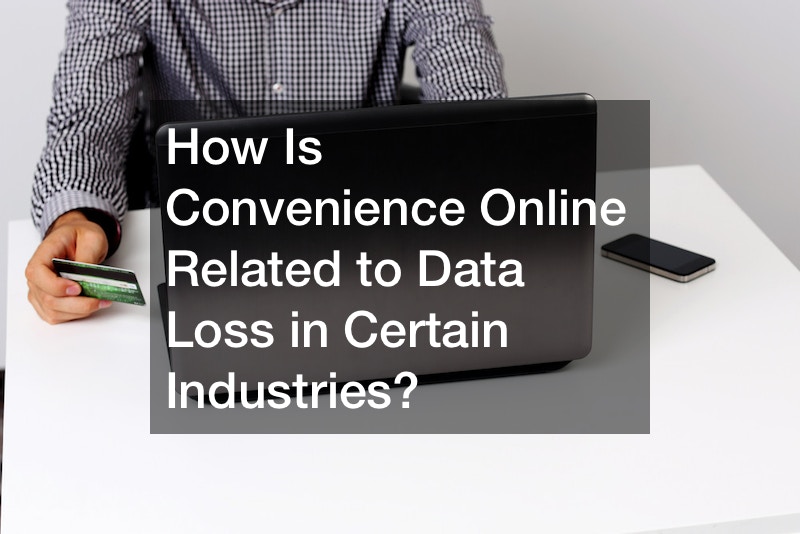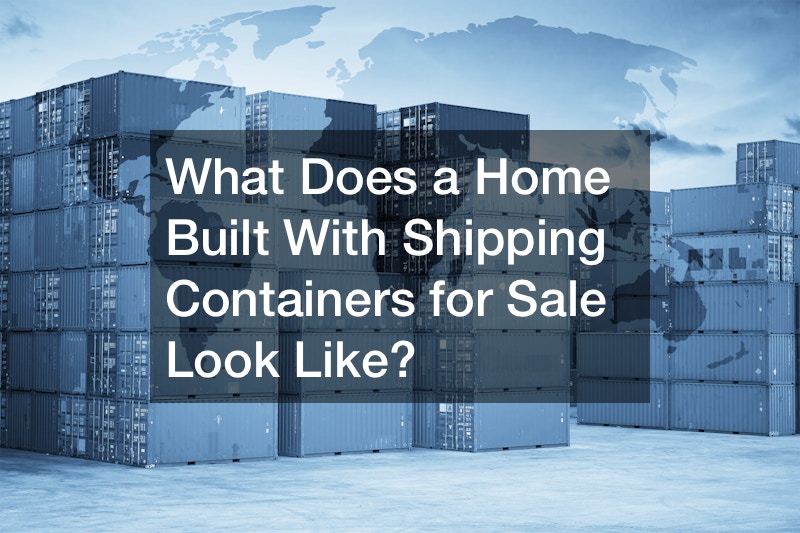
Convenience has never been more essential in the modern consumer market. With convenience comes ease and comfort, but darkness always looms behind it—data loss. Data loss can happen through cyber-attacks, human error, and physical loss of devices, among others. Some industries are more vulnerable than others because of the type of data they handle. You may be wondering: how is convenience online related to data loss? Discover how core industries are exposed to data loss and how to mitigate it.
1. Laser Technology and Engraving

Laser marking companies use laser technology to cut, mark and engrave materials from wood to metal. It caters to various applications, including manufacturing jewelry, design, and artwork. While its heavy reliance on computer-controlled systems and cloud digital data makes work efficient and neat, it also makes the industry prone to data loss. Engraving companies often hold sensitive data, such as patented designs and customer orders.
But how is convenience online related to data loss in the laser technology and engraving industry? Data loss can happen in multiple ways, but two threats stand out: data breaches and ransomware attacks. A data breach occurs when malicious cyberattackers access a company’s computer systems or online platforms. Your engraving company will be more vulnerable to data breaches if you don’t have a robust cybersecurity system.
Ransomware attacks, on the other hand, occur when an attacker renders your data inaccessible by encrypting it, requiring a fee to restore access to you. An attacker commonly gains access to systems and data through phishing emails that appear legitimate yet contain malicious links and attachments. If an employee opens the links, the infection begins.
How can you prevent data loss without compromising convenience as a laser technology company? A good strategy is to work with a computer forensic company to analyze vulnerabilities in your cybersecurity system. They can also train workers on online safety, for example, by creating strong passwords on the necessity for gateway controls.
2. Renovations and Technological Upgrades
The renovations and technological upgrades industry provides services for improving buildings and technological infrastructures in residential and commercial properties. These industries handle proprietary information and sensitive client data. People with malicious intent can try accessing such data for financial gain or corporate espionage. Cyber attackers can also target the products themselves; for instance, they can attack an elevator maintenance system.
You may be wondering: how is convenience online related to data loss in ordinary firms such as waterproofing companies? It’s simple: technology makes convenience possible but also makes data more vulnerable. Cyber attackers can either target the company itself or the consumers. For instance, they can target homeowners with weak passwords after installing a security system. Data loss may also happen because of unsecured Wi-Fi networks.
The other often ignored pathway online convenience can lead to data loss is the human factor. The Harvard Business Review says human error accounts for 80% of cyber-attacks. That means despite the wide media coverage of how dangerous hackers can be, you should be more worried about what you can control—awareness. Sometimes companies lose data because of a disgruntled employee whose grievances could have been handled by HR.
The best strategy you can use is people training, both employees and clients. If you recently renovated an office and its data infrastructure, organize a training seminar on cybersecurity. You can also create easy—read guides for clients to keep them abreast of how cyber-attacks happen. Limit who can access sensitive data within your organization by having access control systems.
3. Business and Marketing

Business and marketing are inseparable and mutually dependent. The industry is engaged in multiple activities that depend on data, such as market research, sales, and customer relationship management. In marketing, information is competitive intelligence. Any vulnerabilities could lead to massive losses in revenue. Imagine if a malicious person were to gain knowledge of Coca-Cola’s secret recipe then upload it on the internet.
Information databases are often key targets of cyber attackers. Upguard reports that in June 2018, a marketing firm in Florida had a vulnerability that exposed its database containing 340 million records of people’s names, contact information, and preferences. Legal marketing companies may have data that puts their clients ahead. Marketers also spend significant resources on social media platforms, which makes them a target.
Whether you are in social media advertising, TV, or banner printing businesses, data loss can profoundly impact a marketing company. Prospective clients will find it hard to trust their businesses with you, and current clients may sue you over damages. You’ll have to double your PR efforts to deal with the damages. Some marketing companies can go under if a breach is massive.
Now you know the answer to your question: how is convenience online related to data loss in marketing, but what can you do? As with any industry dependent on technology, have a robust cybersecurity system to protect your business. Set part of your budget towards hiring a cyber expert or employee training. Also, ensure employees only access the information they need.
4. Standard Conveniences
Now more than ever, thanks to technology, consumers can enjoy everyday ease and comfort. You can shop without paying cash and have goods delivered to your door without leaving the house. One can order shoes, food, and even luxury restroom trailer rental. However, with such convenience comes the risk of data loss, especially financial information. As the retail and e-commerce industry continues to evolve, so will the need for a robust cybersecurity system.
Let’s look at two online shopping features to answer your question: how is convenience online related to data loss? A common feature is cloud-based services where e-commerce clients can store and synchronize data seamlessly through multiple devices. Without proper security protocols, cyber attackers can access information and cause damage. Modern browsers also have options for online transactions, which, if unsafe, could expose sensitive financial data.
As a convenience e-commerce business, you can take measures to educate your clients on data security. For instance, you can share tips on social media on how to choose a strong password. You can also set a muti-authentication measure on your apps so that if a client loses their device, cyber attackers can’t use it to access sensitive data.
5. Transportation

The transportation industry has been an avenue for technological shifts for centuries. From revolutionizing engines to golf cart maintenance, the transport industry has enjoyed the benefits of technology. However, that has often come with a cost of data loss. Between June 2020 and June 2021, the Cyber Security Guide reported a 182% increase in ransomware attacks on transportation systems. The industry could be a target for business and political intents such as corporate espionage and anarchy.
How is convenience online related to data loss in the transportation industry? A common pathway is attacks on operational systems. Cyber attackers deploy malware causing delays and service outages. In a recent ransomware attack, transportation in Nagoya Port Authority was halted, a report by CPO Magazine reports. Apart from ransomware and malware, the physical loss of devices can cause data loss. Cyber attackers have used lost mobile devices to access personal vehicles or interfere with their operations.
Whatever transportation business you are in, from taxi to reefer trailer rental services, you must implement systems to prevent cyber-attacks. A good place to start is regular vulnerability assessment. You can get such an assessment from a security expert specializing in the transportation industry. If you have employees, schedule regular training sessions to raise awareness of cybersecurity threats. If you have synced information on mobile devices, install remote wiping capabilities to wipe out sensitive data.
Without such measures in place, your transportation business and assets will be compromised, leading to significant losses and reputation damage. Of course, the most immediate effect would be service disruption, so businesses would stall, and customers would be disgruntled. Data loss can also lead to financial problems because you have to pay legal fines.
6. Health and Safety
Health and safety industries are one of the most common targets by cyber attackers, and for a reason. Health institutions collect sensitive information, including DNA profiles, financial data, and physical addresses. So vulnerable is healthcare data that healthcare firms are required to comply with HIPAA regulations to protect patients. Some companies can commit corporate espionage or access proprietary data beneficial to big pharma.
How is convenience online related to data loss in the healthcare industry? Through data record and safety protocol breaches. Cybercriminals can remotely or physically access health records and then facilitate identity theft with the information or sell it in the black market. They can also compromise medical devices, leading to millions of dollars of losses. In 2017 the FDA recalled about half a million pacemakers because of a hacking vulnerability, as reported by the Guardian. Cybercriminals can also cause damage to non-human devices such as pet bottle preform machines.
A common strategy to minimize data loss in healthcare is training healthcare providers and other staff. Hospitals and other health institutions must comply with HIPAA regulations, so compliance with regulation is a good first step. Back-up data centers can also help a hospital continue operations even after a ransom attack. Also, each institution should have multi-authentication measures in the hospital system.
7. Finance and Banking

In the past, people had to go to the bank to withdraw money and make transactions. International banking was trickier considering the distance. However, finance and banking have enjoyed technological advancements in the last few decades to improve convenience. Today, you can send money anywhere in the world within minutes. Yet this convenience comes at a cost – the risk of data breaches.
You may be wondering: how is convenience online related to data loss in the fintech industry? The most common target of these data breaches is credit cards. Cyber criminals gain access to personal data, which they can sell or use for financial gains. Sometimes cyber attackers target banking institutions directly. According to the International Monetary Fund, 54% of banking firms lack the appropriate cybersecurity framework to protect sensitive data.
To mitigate such risks, each banking institution should have a dedicated staff in cyber security. These staff should keep abreast with the latest cybersecurity regulations. Complying with regulations protects you as a business and shields you from legal woes. Another strategy is empowering customers and employees. For customers, you can share helpful tips through your email newsletters, social media platforms, and physical buildings. For employees, banking institutions should have regular training seminars.
8. Energy and Utilities
Energy and utility industry ensure we keep warm, fed, healthy and mobile. They are core to everyday life, are worth billions of dollars, and specific institutions collect mountains of data each year, making them good targets of cyber criminals. Cyber attackers can target electrical infrastructure, water delivery systems, and post mail services. Compromising the energy and utilities industry can bring a country to its knees, so governments invest a significant portion of the budget in protecting such assets.
How is convenience online related to data loss in energy and the energy and utilities industry? One possible reason is politics. Intercede cites a 2015 case in which a wide blackout in Ukraine affected 225,000 people. The theoretical possibility of a mass cyber attack on utility companies is so real multiple filmmakers regularly include this in fictional work. Governments and state companies must continue regular assessments to protect infrastructure from such attacks. Policy changes should reflect an intention to protect consumers from data loss.
To bring it all together, industries must take measures to protect themselves from data loss because it has severe consequences. However, that doesn’t mean giving up on the convenience technology brings. You, your employees, and your customers can learn how to create a cyber-secure environment that protects all your interests. This guide has helped answer the pertinent question: how is convenience online related to data loss, and what are the mitigation strategies? Through employee training, data back-ups, and vulnerability assessments, businesses in different industries can continue offering ease and comfort to clients while protecting sensitive data.



